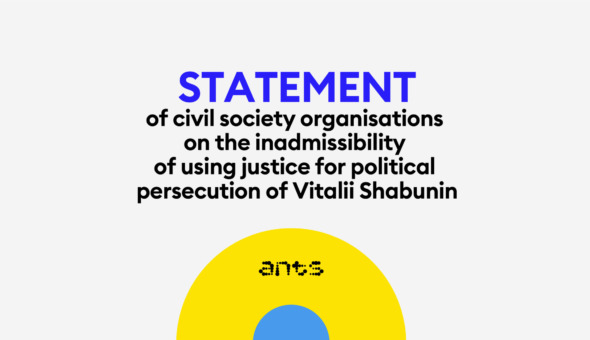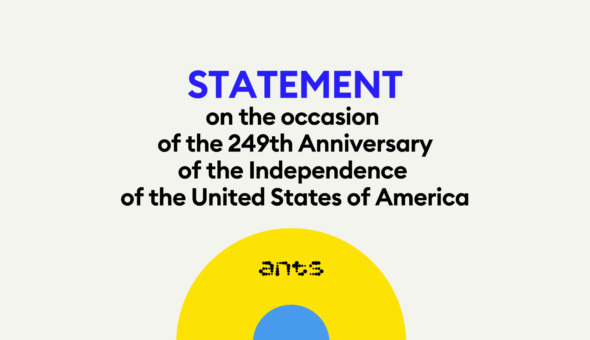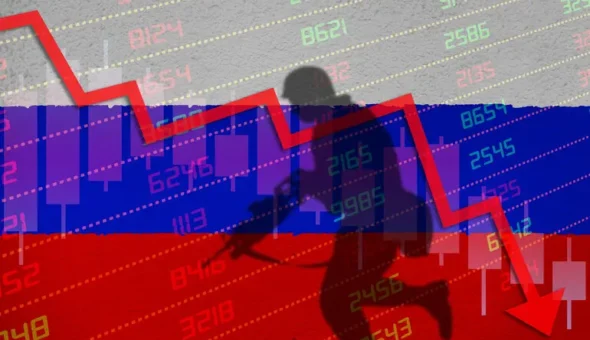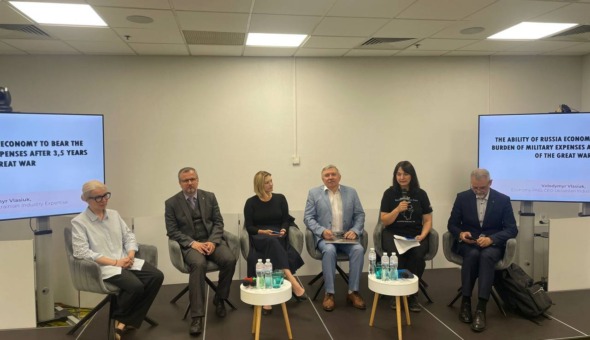
This summer, we held 6 educational meetings for various united territorial communities within the framework of the project “Models of Participation in Ukrainian Restoring”, which is implemented by the ANTS National Interest Advocacy Network with the participation of the “Respublica” Institute, the all-Ukrainian initiative “Active Community” and “Smart Media” under the auspices of the National Democratic Institute (NDI) on the topic of prevention and treatment of PTSD in military personnel returning home from the combat zone. We talked about what every ordinary civilian should know in order to create positive prerequisites for safe and comfortable interaction for both sides.
It has long been understood that not only military psychologists, employees of rehabilitation centers, or social services, but also the veteran’s immediate environment (both relatives and people he/she meets on the streets during the day) play an important role in the process of recovery of the military after participation in combat operations.
Post-traumatic stress disorder in the military and civilians is similar in many respects, but the difference in their experience is created by a fundamentally different attitude of the military toward themselves and to life. This imposes additional requirements for understanding the psychology of people who have returned from the combat zone and requires conscious and appropriate interaction with them. Therefore, during the training, we explored how the thinking, certain behavioral habits, and reactions to external stimuli of the military change and how this distinguishes them from civilians. This knowledge will help the participants build the right model of behavior, which will allow us to create the softest possible indirect support for soldiers so that they can transform the experience they gained in the war and learn to live with it in civilian life after their return.
During the trainings we also learned that it is important to perceive veterans not primarily through the prism of possible PTSD, but through the prism of the changes they had to go through in order to survive and be successful in the war. During the service, soldiers acquire new skills: to be insensitive, to make quick decisions, to act coolly and calmly in conditions of great stress or danger, to follow orders, to refrain from “getting stuck” in emotions, etc. The war takes a soldier beyond the simple framework of “this is good and this is bad”, in fact, he becomes a different person. And it is important for us to learn how to live with such people and help them gradually adapt their new habits to peaceful realities after returning home.
The main thing we focused on was the perception of soldiers returning home. Many people now believe that veterans are sick people who need to be treated. And that they all urgently need a psychologist. And even psychologists can’t always convey enough respect to the military and are sometimes treated as mentally ill. The military does not like this. Veterans are proud and wayward people who felt their own value in the war and who rightly felt like defenders who survived thanks to that system of rules, which upon returning home is considered strange and inappropriate. If a soldier has not yet adapted, his first natural reaction to this attitude is aggression.
Whenever he is looked at strangely with pity, fear, condemnation, or ridicule at work, in a restaurant, or in the family, a veteran can lose his temper with anger because of the disrespect for what he lived.
So we learned to understand and correctly read the behavior of the military and their non-verbal signals.
What are the main themes highlighted by the training participants?
- If a soldier suddenly falls silent during a conversation (for example, while telling a story) and seems to sink into himself, pause, give him space (do not approach or touch him), and then gently change the subject. You should not return to the topic or pay special attention to it in any way; the soldier himself will return to it when he considers it appropriate.
- It is desirable to avoid unexpected changes of plans or unplanned surprises, since soldiers have a persistent habit of planning their actions and there is a need for the world around them to be predictable and controllable. Therefore, they may react too sharply or negatively to spontaneous changes in plans or decisions about which they were not warned.
- When communicating with veterans, it is important to carefully observe how they react to conflicts or emotional pressure. If, during a conversation, a soldier turns around and goes to another room without finishing the conversation, leave him alone, do not follow him, and do not provoke him to continue the conflict, as he may perceive this as an additional threat and automatically turn on protective mechanisms.
- Both the military and various special forces or professional athletes (especially in martial arts) have developed the habit of striking instantly. Therefore, it is important to learn to avoid unexpected physical contact with the military (especially in the first months after their return): to wake them up with attempts to shake them by the shoulder or to approach them from behind with a hug. Before touching a veteran, make sure he or she sees/hears you and that he or she perceives you.
- At war, the military thinks in terms of units and usually knows where their comrades are at the moment. Monitoring your location allows you to be calm for them. When a fighter returns home, his family becomes his unit, so at first after returning, he may demand excessive coordination of actions or reporting from loved ones; this may look like mistrust or hyper control. In fact, it is important to remember that in this way, he takes care of the safety of people important to him, and he needs time to adjust.
We studied these and other rules and principles of military support at trainings. We are grateful to people for their activity and emotional involvement. Furthermore, we have great hope that there will be more and more people capable of creating a safe space for communication and life for both civilians and military personnel.
It is important that during 6 trainings in partner communities: Dunayivtsi (Khmelnytskyi region), Berdychiv (Zhytomyr region), Myronivka (Kyiv region), Novoukrainka (Kirovohrad region), Pervomayskiy (Kharkiv region) and Nizhyn (Chernihiv region), before the events, 115 participants joined (in offline or online formats).
According to the analysis of the final questionnaires, 85% of the respondents noted the event as “extremely interesting”. 80% of training participants “gained a lot of new knowledge”, while the remaining 20% increased their knowledge in certain aspects. The absolute majority of training participants (55%) seek to use the acquired knowledge for the benefit of the community through various public initiatives.
The project “Models of Participation in Ukrainian Reconstruction” is implemented by the ANTS National Interests Advocacy Network with the participation of the Institute “Respublica”, the All-Ukrainian Initiative “Active Community” and Smart Media under the auspices of the National Democratic Institute (NDI).



